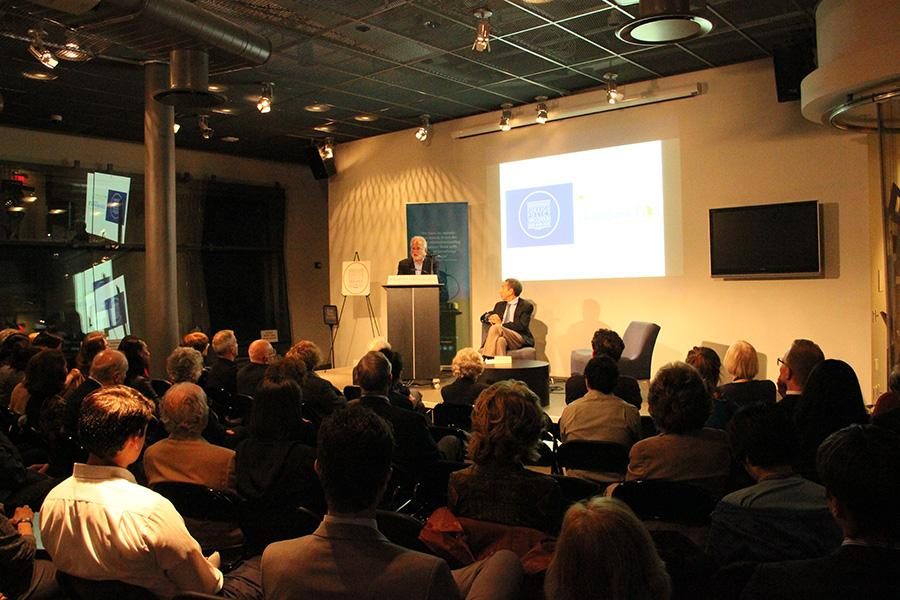Lecture discusses Afghan stability
Barnett Rubin (center) talks to students and faculty at his lecture on the state of Afghanistan.
October 6, 2014
The role of America in Afghanistan was scrutinized in a lecture hosted by NYU’s Center for Dialogues on Oct. 6. It was held at the Arthur L. Carter Journalism Institute.
“America’s Latest Orphan: Afghanistan. What Does the Future Hold for the Country?” was led by Barnett Rubin, director at NYU’s Center on International Cooperation and former senior adviser to the special representative of the president for Afghanistan and Pakistan in the U.S. State Department, opened his lecture by discussing the next steps for Afghanistan as the United States pulls out.
“The president’s job description does not entail reforming and creating a new Afghanistan,” Rubin said. “The most important thing for stabilizing a country is to maintain a sufficient level of funding to support the unity of the national government, and to build a coalition of regional powers that would be supportive of Afghanistan.”
Rubin said counterterrorism missions in the region have stalled efforts to stabilize it.
“Missions to stabilize and missions to counterterrorism cannot coexist, and, in my experience, the mission to counter terrorism will always win,” Rubin said. “Yet we cannot ignore how the absence of a certified government or external funding has led to weak institutions.”
Rubin said, despite Afghanistan’s listing as one of the 10 poorest countries in the world, the American government’s desire to reform Afghanistan would not justify nation-building.
“Whatever interest we have in Afghanistan doesn’t justify the $100 billion we’d sacrifice and the inevitable lives that would be lost,” Rubin said. “Additionally, the opportunity cost, such as spending our money for domestic investment or countering terrorism in other places, would be too costly as well.”
James Ferrari, from the Foreign Policy Association, attended the lecture and said he agrees with Rubin’s description of boundaries in regard to our responsibilities to Afghanistan.
“I think our goal in the Middle East should be concentrated in democracy and watching for countries who are violating humanitarian rights instead of nation-building,” Ferrari said. “I believe through foreign groups and organizations, we can together aid Afghanistan toward stabilization.”
Rubin concluded his lecture with a positive perspective on the future of Afghanistan.
“Afghanistan is not going to be the United States’ orphan because it’s not our child, it belongs to itself,” Rubin said. “It has a leader with a vision now, Ashraf Ghani, that will create some opportunities that I hope they will make use of.”
However, Samea Shanori, a first-year transfer student from Afghanistan, said a last-minute effort should be made in creating a national identity through establishing educational opportunities.
“I really liked Rubin’s idea of promoting education, and I think expanding it through programs nationwide will be great for Afghanistan,” Shanori said. “I agree with him that troops and military response would be the wrong method, but promotion of education does still involve a sort of nation-building.”
A version of this article appeared in the Tuesday, Oct. 7 print edition. Email Rachel Cao at [email protected].
























































































































































